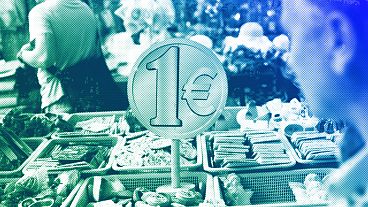Germany's economy grew 1.9 percent last year boosting the budget surplus hugely, but Chancellor Merkel says the country won't take on any new debt.
Manufacturing powered ahead last year in Germany to give the economy strong growth and the government a record budget surplus of 23.7 billion euros.
The country’s treasury benefited from soaring tax revenues, rising employment and low borrowing costs.
GDP growth was 1.9 percent for the whole year, just topping Britain’s 1.8, with the eurozone at 1.7 percent and the United States reaching 1.6 percent.
Germany ended the year in style as the world's fastest growing major advanced economy https://t.co/WTcMEy2imQpic.twitter.com/kpBqAxD6Oo
— fastFT (@fastFT) February 23, 2017
Higher German government expenditure also played a big part.
The country has spent heavily on housing and integrating the more than one million migrants – most fleeing war and poverty in Africa and the Middle East – who have arrived there in recent years.
Limited room to manoeuvre
Commenting, Chancellor Angela Merkel said the budget surplus is not as big as it seems and she rejected European Commission calls for Germany to spend more to help boost the eurozone economy.
She said the government’s fiscal room to manoeuvre is limited: “It’s a federal surplus and we need to look carefully at what unemployment insurance and pensions there are. Then there’s the situation with the different German states and the communities that needs to be looked at and when you then get to the federal budget, the surplus is very modest.”
Central bank reaction
The head of Germany’s central bank said in a time of plenty it is setting aside more money in case of losses on the bonds it is buying as part of the European Central Bank’s stimulus programme.
Jens Weidmann welcomed the growth, saying: “The German economy with capacity utilisation perceptibly higher that that of the euro area remains in good shape. Employment once again hit a new all time high last year, thanks above all to healthy domestic demand.”
He also argued for the advantages of free trade, saying that “the German government the Bundesbank will reiterate its backing for open markets and fair trade at the forthcoming G20 meetings”.
“In times like these when uncertainty is rife it is safe to say that constructive cooperation between the most important stakeholders in the G20 context is even more significant than it is in any case.”
Consumer sentiment
As the growth statistics were released, the German finance ministry said it expected spending by households and government to drive growth again this year, but a consumer sentiment survey just published by GfK showed Germans less confident and worried about economic risks linked to the policies of US President Donald Trump.
GfK researcher Rolf Buerkl said: “Above all, protectionism is a problem especially for those employed in Germany’s export industries, and that has led to uncertainty. Some people might now be more concerned about the security of their jobs.”
Rising prices were another reason given for consumers being more pessimistic in their responses to the consumer survey – inflation in Germany hit 1.9 percent in January.
Germany GFK Consumer Confidence announcement – Actual: 10.0, Expected: 10.1 pic.twitter.com/YbEPWYrVhM
— Spreadex (@spreadexfins) February 23, 2017



